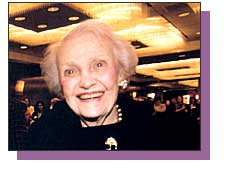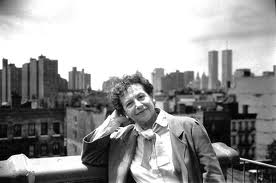 This half hour documentary aired on NPR’s The Journal in 1982. It reflects the situation for senior women — women over 65 — at that time. Women of that age in the late 70’s and early 80’s had often been stay-at-home wives and moms. So when their husbands died before them, they were often left destitute and ill prepared to maintain their lives. Others, who worked all their lives at low-paying jobs, had little or no pensions. When their husbands died, they lost any pension or social security belonging to their husbands.
This half hour documentary aired on NPR’s The Journal in 1982. It reflects the situation for senior women — women over 65 — at that time. Women of that age in the late 70’s and early 80’s had often been stay-at-home wives and moms. So when their husbands died before them, they were often left destitute and ill prepared to maintain their lives. Others, who worked all their lives at low-paying jobs, had little or no pensions. When their husbands died, they lost any pension or social security belonging to their husbands.
Too Old to Work, Too Young for Social Security
A majority of senior women living in New York City were isolated and economically stressed. If they were widowed before they were 60, there was little hope of reviving a working career if they had one previously. They were too old to find jobs and too young for social security. In this documentary, we hear from a number of senior women in this situation and social service providers and policy makers like Elinor Guggenheimer, advocate for children, women and the elderly, and founder of the Women’s Forum which became a national and international organization. Guggenheimer explains that problems begin for women between 45 and 65. If they have worked, they have usually received much lower pay than men and consequently their social security benefits are minimal. “They are often displaced homemakers, now living in poverty because when their husbands die there is nothing they can do but try to live on social security.”
Pay and Social Security Inequities and High Rents
Another advocate for seniors was New York City Councilwoman, Miriam Friedlander: “95% of senior women live alone in unsafe neighborhoods in New York — like the East Village and the Lower East Side. And they cannot move because this is where they find cheap rent. As it is 70% of their social security benefit goes to rent.” As one senior explains “I don’t have a phone, a radio or a tv.” One social service worker explains how many of these women eat only one meal a day — the meal they get at a senior center.
Living Longer Means More Chronic Illness
This situation is exacerbated for women because they usually live longer than their husbands. But they too may fall prey to chronic health problems and osteoperosis – a disease which in the early 80s was getting attention for the first time — which further limits their mobility.
“They have worked hard as housewives and mothers but with no compensation or social security contributions that would provide them a little pension at this stage of their lives. It’s really economic inequity that impoverishes women after a certain age,” says Elinor Guggenheimer. One service provider calls for “changing the laws to support this aging population.
Isolation, Fear and Loneliness
Dr. Frederick Zuckerman, a geriatric psychiatrist, speaks eloquently about many of these women as children move away, idiosyncratic personalities prevent new friendships, and compromised health and fear mean further isolation and depression. But there are community services attempting to address some of the needs of senior women. Zuckerman makes house calls to elderly women in Lower East Side apartments. “Our program tries to make it possible to keep these women from going into institutions by providing support services in the home and getting them to senior centers.” Another program sends young volunteers to visit with the home-bound — to listen and to learn, to assist and be company.
Elinor Guggenheimer addresses the image problem for senior women. “We’re no longer attractive and people think we turn into doddering idiots after a certain age, yet many women keep vital into their 80s.” As one senior says. “Young people need to see us as intelligent people who have something to teach.”


